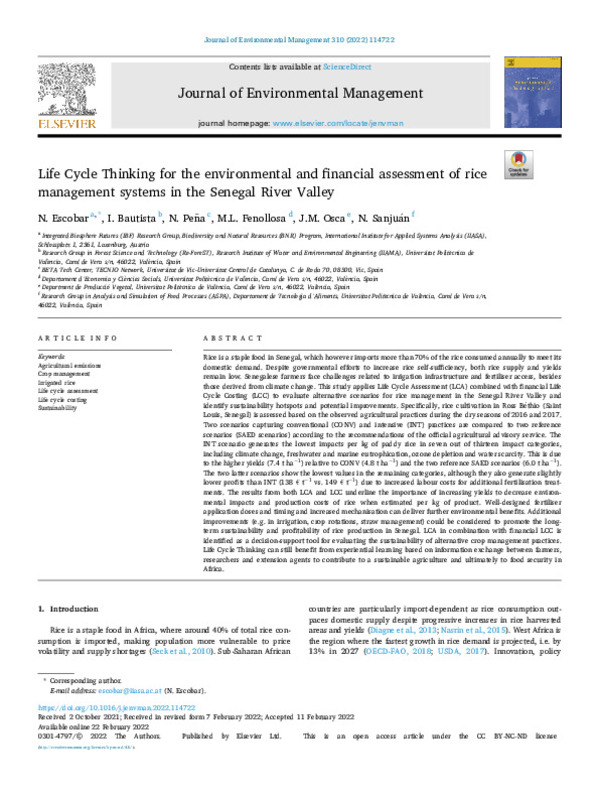JavaScript is disabled for your browser. Some features of this site may not work without it.
Buscar en RiuNet
Listar
Mi cuenta
Estadísticas
Ayuda RiuNet
Admin. UPV
Life Cycle Thinking for the environmental and financial assessment of rice management systems in the Senegal River Valley
Mostrar el registro completo del ítem
Escobar, N.; Bautista, I.; Peña, N.; Fenollosa Ribera, ML.; Osca Lluch, JM.; Sanjuán Pellicer, MN. (2022). Life Cycle Thinking for the environmental and financial assessment of rice management systems in the Senegal River Valley. Journal of Environmental Management. 310:1-15. https://doi.org/10.1016/j.jenvman.2022.114722
Por favor, use este identificador para citar o enlazar este ítem: http://hdl.handle.net/10251/193649
Ficheros en el ítem
Metadatos del ítem
| Título: | Life Cycle Thinking for the environmental and financial assessment of rice management systems in the Senegal River Valley | |
| Autor: | Escobar, N. Peña, N. | |
| Entidad UPV: |
|
|
| Fecha difusión: |
|
|
| Resumen: |
[EN] Rice is a staple food in Senegal, which however imports more than 70% of the rice consumed annually to meet its domestic demand. Despite governmental efforts to increase rice self-sufficiency, both rice supply and ...[+]
|
|
| Palabras clave: |
|
|
| Derechos de uso: | Reconocimiento - No comercial - Sin obra derivada (by-nc-nd) | |
| Fuente: |
|
|
| DOI: |
|
|
| Editorial: |
|
|
| Versión del editor: | https://doi.org/10.1016/j.jenvman.2022.114722 | |
| Código del Proyecto: |
|
|
| Agradecimientos: |
Authors acknowledge the Office of Development Cooperation of the Universitat Politecnica de Valencia (CCD-UPV) for providing funds as part of the project AD1511-UPV. Authors also thank the support of Caritas Spain (especially ...[+]
|
|
| Tipo: |
|









